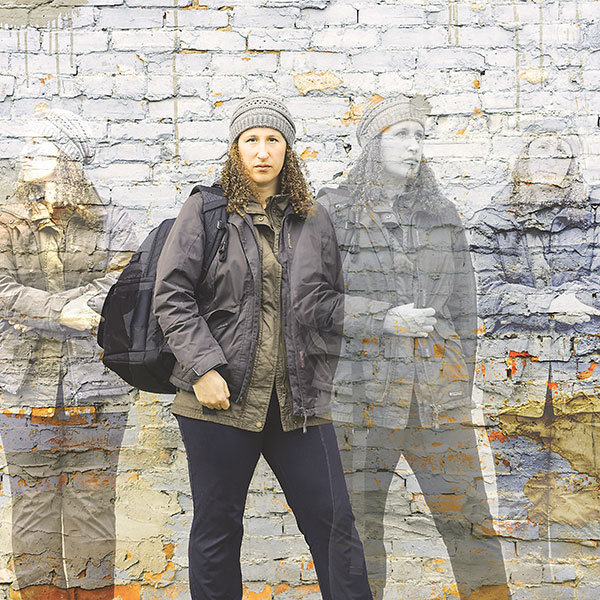Almost a year ago, Inside Sacramento began monthly coverage of the homeless problem in our area. A key focus has been the root causes of homelessness, including mental health and drug and alcohol addiction.
In my May 2019 column, “Is Sacramento Dying?” Sacramento City Councilmember Jeff Harris said he favored an individual triage process to help understand the paths that bring people to the streets. His goal is to avoid placing folks who are simply unable to afford or find shelter in the same category as addicts, criminals and the mentally ill.

Dr. Pinsky contends our situation in California is not a crisis of housing or homelessness. Rather, it’s a mental health crisis. The media and political leaders have largely glossed over the mental health aspect in their rush to “solve” the homeless problem by building expensive housing.
“Housing does not cause our communities to need to rake parks of hundreds of needles before children are able to play,” Pinsky told the Sacramento audience. “Housing is not going to help the paranoid, poorly clothed manic or paranoid schizophrenic.
“In fact, the symptoms of these illnesses will cause the homeless to refuse to remain indoors and to accept help or treatment. To hear politicians use the rhetoric of a housing crisis is just recklessly negligent and just contributes to the misery and death of untold numbers.”
Pinsky believes the current problem stems from civil commitment reforms created in the late 1960s that made it too difficult to care for individuals with serious mental illnesses if they refused treatment. As a result, many institutions that involuntarily housed mentally ill people were closed.
Reforms began with the 1967 Lanterman-Petris-Short Act, written as a reaction to abuses. The law changed our civil commitment process in California. As a result, mentally ill individuals migrated to the streets, then often to county jails. Then and now, the outcome is not humane.
Of all the people who live on our streets, the mentally ill may be the most misunderstood. They create fear with erratic behavior. And while effective treatments are available, receiving and maintaining a therapy regimen is often problematic.
Last September, we invited state Sen. John Moorlach (R-Costa Mesa) to our pages with an article titled, “Not Humane: Why Can’t State Help Mentally Ill Homeless?” He opined that housing is just one part of the solution. Another major problem is mental illness, which drives many homeless people to the street. He questions—like many of us—why political leaders allow mentally ill homeless to remain unsheltered.
Moorlach authored Senate Bill 640, which sought to clarify the definition of “gravely disabled.” The bill examined an individual’s ability to make informed decisions about his or her health.
Sadly, SB 640 was shelved last year. Moorlach says his proposed changes would have expanded treatment opportunities for our most vulnerable, put them under conservatorships and involuntary housing when needed, and diminished inhumane neglect. He is gathering research for reconsideration of SB 640.
In January, I attended the 2020 State of Downtown breakfast hosted by the Downtown Sacramento Partnership. The guest speaker was Dr. Drew Pinsky, a celebrated Pasadena internist and addiction specialist. I was familiar with Dr. Pinsky—Moorlach cited him in the article we published.

“Never did I imagine I would live in a state which would systematically allow those with massive mental health needs to languish and deteriorate in the most unconscionable, abject circumstances,” Pinsky said. “The very symptoms causing desperately ill patients to spill into our streets are being protected in the name of compassion. This is dialing back to a Medieval understanding of psychiatric illness and is outrageous, particularly in the era of effective treatments which can restore patients to stability.
“The public has to understand that stranding people with serious mental illnesses on our streets is crueler than housing and treating them against their will. As homelessness keeps getting worse, the need for this solution will become more obvious. It is anathema to the basic needs of civilization to allow the current situation to continue.”
Pinsky continued, “Psychiatric symptoms are given privileged positions in the law. Not just the pathology, but the actual symptoms themselves are being privileged over the well-being of the individual displaying those symptoms, the safety of that individual, our ability to render care to them and the safety and sanitation of the surrounding community.”
Pinsky believes homelessness demands a two-pronged solution: First, more involuntary housing. Second, reform the 1967 LPS Act. Pinsky says the passage of SB 640—Moorlach’s mental health reform bill—should receive top priority. “To show true compassion for these individuals, we must have the tools to combat their symptoms,” Pinsky said.
The mental health issue might be easier to understand if we look at our own families. Even when folks are eager for help and lovingly supported, treatment can be difficult.
Last summer, my husband Jim suffered a concussion when his car was rear-ended. At his age the brain is more vulnerable to injury from trauma. In the following months we both struggled with his symptoms, which included memory loss and difficulty with decision-making and cognitive abilities. At one frustrating point he asked me whether this was what the minds of homeless people were like. His comment made me think!
A few days later, I heard an interview with Dr. Daniel Amen, a psychiatrist, founder of Amen Clinics and an expert on brain health and mental illness. He referred to a study where a homeless population received SPECT brain imaging. More than 70 percent had brain trauma.
After a tour of Sacramento with Mayor Darrell Steinberg, Pinsky reported he has hope for us to solve our crisis. “Especially,” he said, “since I have lost all hope for Los Angeles.”
Steinberg addressed the breakfast audience and announced his embrace of the Haven for Hope model that has found success in San Antonio. Pinsky was enthusiastic and wished us well. Be sure to read Craig Powell’s piece this month for more information on the Haven for Hope movement in Sacramento.
Cecily Hastings can be reached at publisher@insidepublications.com. Follow us on Facebook, Twitter and Instagram: @insidesacramento.
















